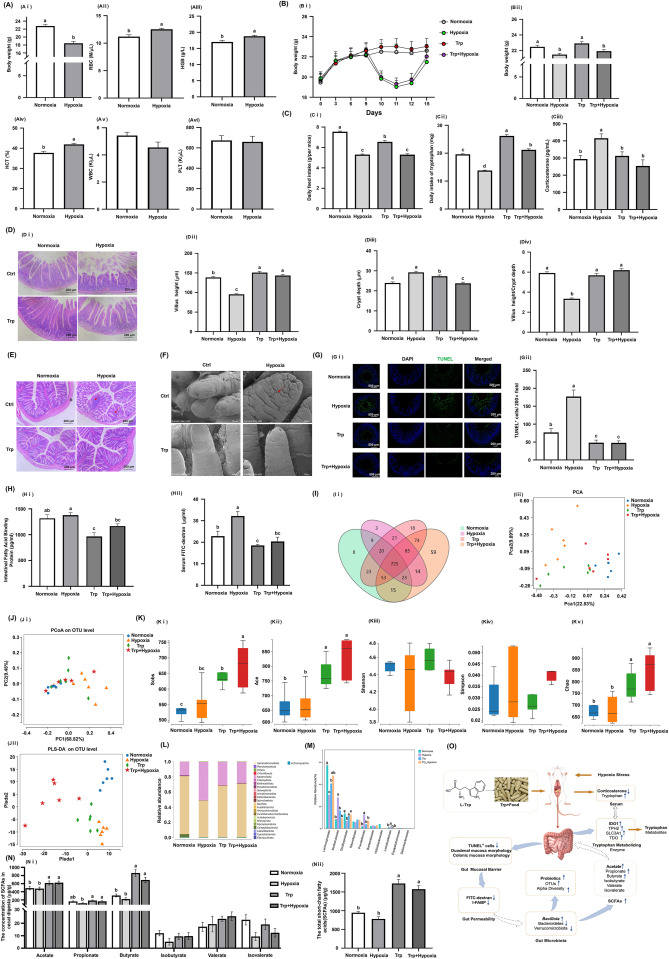
Tryptophan attenuates acute hypoxic stress-induced intestinal injury through the modulation of intestinal barrier integrity and gut microbiota homeostasis


There is growing evidence that acute hypoxia can be hazardous to health by causing damage to a variety of human organs. Gastrointestinal dysfunction is a common symptom of acute mountain sickness, and the pathogenesis of acute hypoxic gastrointestinal injury is complex. Additionally, the incidence of gastrointestinal disorders in people travelling to highland areas increases with altitude.1 Studies have shown that tryptophan possesses stress-relieving effects, but the specific effects and mechanisms of tryptophan require further elucidation. In this study, we analyzed the potential mechanism of tryptophan in ameliorating hypoxic intestinal stress injury under the induction of acute hypoxic stress using scanning electron microscopy, 16S rDNA sequencing, and gas chromatography. Our results showed that tryptophan supplementation could promote the recovery of the intestinal barrier, reduce intestinal permeability, and increase the species diversity of gut microbiota. Furthermore, it promoted the growth of beneficial bacteria and the production of their functional metabolites, short-chain fatty acids, in hypoxic stress mice. This could effectively alleviate hypoxia-induced intestinal injury and improve intestinal health.
